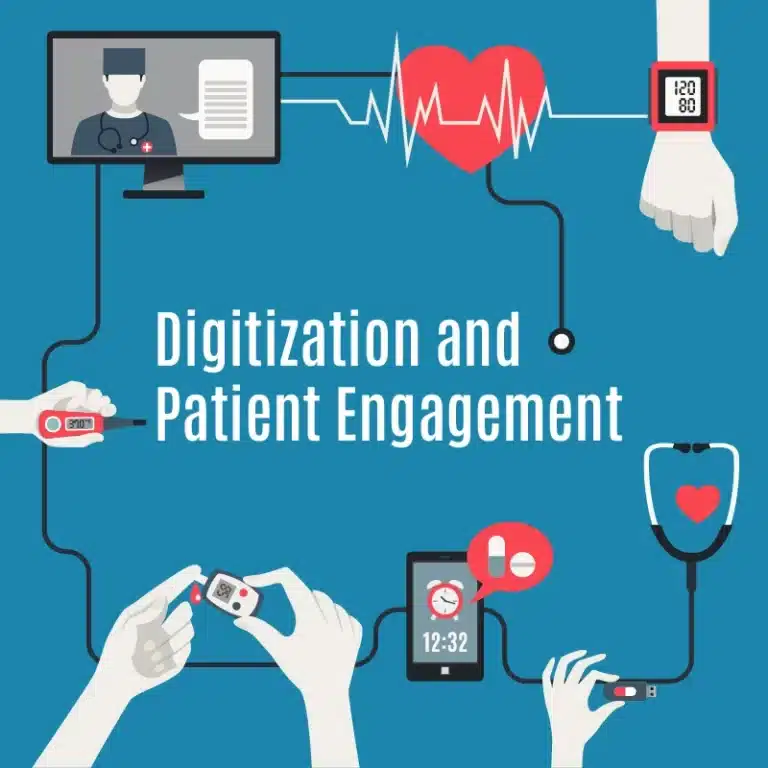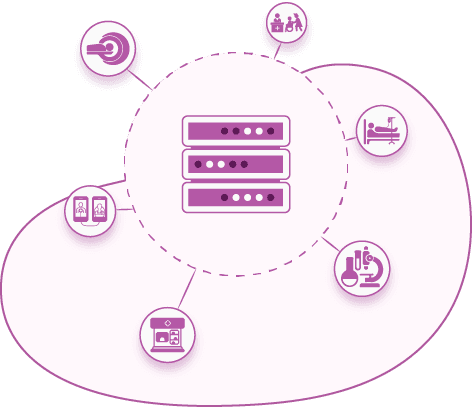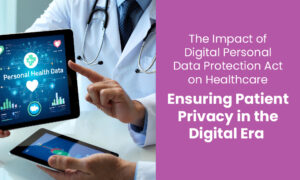As healthcare dynamics have changed and awareness has grown, the patient has become the centre of the care continuum. The patient went from being a ‘decision-follower’ to a ‘decision-influencer.’ Active patient engagement has become critical for healthcare stakeholders. Emerging digital trends have been discovered in this article that can successfully engage patients, increasing healthcare results and improving the patient experience.
Medical technology digitization is essential for connecting and integrating healthcare data across the continuum of care. On the other hand, digitally-enabled medical technology is only part of the solution. Patient engagement is crucial for 100% utilization of the digital healthcare ecosystem, as it motivates patients to access, use, and follow digital services and tools to manage their health and wellness.

What is Patient Engagement?
It is an activity, initiative, or programme launched by a pharmaceutical company or a provider to deploy multiple touchpoints. It provides value-added services through digital mediums to ensure complete engagement with patients. Patient engagement not only empowering them to make a shared decision on the care provided but also improving their care experience and health outcomes. The Solution is allowing healthcare organizations to achieve marketing objectives.
Role of Patient Engagement
Investment in modern medical technology provides healthcare professionals and patients with digital services. We provide tools that help them navigate the care continuum and achieve their treatment goals. Healthcare workers make clinical decisions based on data insights, which leads to better patient outcomes. Patients are also actively participating in their care by investing in themselves and setting self-care management goals.
Role of Digitization
Digitalization has been critical in amplifying the impact of the benefits of patient involvement and assisting stakeholders in meeting their goals. These stakeholders attempt to develop an omnichannel ecosystem using the Internet, mobile technologies, and social media. We provide them access to various touchpoints with patients to facilitate interaction.
The Connection
The need to interact with patients at every stage of their healthcare experience is important. For the patient engagement in a value-based care ecosystem the conncetion is essential. Healthcare providers invest in important patient engagement services and tools. The tools like remote health monitoring, chronic illness management, compliance programmes, patient education programmes, and wellness support. Additionally, they are involved in the effective use of traditional and digital channels to allow new, chronic, and transitioning patients. It helps to seek preventive and reactive treatments.
The emphasis is on providing individualized and dynamic care recommendations to every patient, regardless of the care setting. They are also launching steps to improve population health management efforts by providing member-specific counselling and establishing value-based healthcare relationships. Healthcare providers are also attempting to promote patient behaviour that fosters proactive self-care.
In addition to existing technology, advanced technologies such as Machine Learning (ML), the Internet of Things (IoT), Artificial Intelligence (AI), and others are being studied to offer creative engagement opportunities.
Companies are working to build an integrated ecosystem-based on IoT and an intelligent algorithm that connects engagement activities to patient health outcomes. It will help quantify the benefits and, by demonstrating those benefits, persuade insurance companies to support these engagement programmes. Furthermore, it will help physicians to make data-driven healthcare decisions. Furthermore, pharmaceutical companies and payers are developing innovative medicines and marketing strategies based on data.
Patients and doctors are educated about such efforts using AI/ML-based Chatbots, Virtual Coaches, and Robots to be aware and increase adoption rates. These apps can combine with deep-learning technology to build a self-learning recommendation engine that will aid clinicians in determining a personalized treatment plan for each patient. These technologies are becoming more widely adopted, yet the momentum is missing.
Conclusion
A healthcare provider ecosystem that uses smart technology to support seamless communication between clinical and non-clinical systems and digitally connected medical technologies to create actionable data will drive patient engagement. It will open up endless possibilities for outcome-based care. Traditional channels are not being phased out by digitalization; rather, they are being supplemented. It has achieved significant progress in patient involvement programmes run by several healthcare stakeholders. With the development of digital technologies, these stakeholders’ reach has multiplied.



















